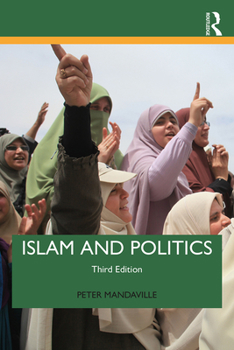Islam and Politics (3rd edition)
Select Format
Select Condition 
Book Overview
This book is an accessible and comprehensive account of political Islam in the contemporary world. Providing a broad introduction to all major aspects of the interface of Islam and politics it combines an accessible style with sufficient depth for the academic classroom. Drawing on insights from comparative politics and Islamic studies, this book explains the complex interaction between Islam, society, the state, and processes of globalization. Preserving the previous editions' strong focus on key concepts from Islamic history as they relate to contemporary political Islam, this new edition includes coverage of important developments and updated country overviews from the Middle East, Central and South Asia, Southeast Asia, Europe and North America.
Features include:
Two new case studies on Southeast Asia and Europe.
Exploration of the origins and development of ISIS, Al-Qaeda and various regional affiliates of the global Salafi-Jihadi movement.
Coverage of contemporary debates about radicalization and violent extremism.
Examination of questions of Islam's compatibility with democracy; the role of women; and Islamic perspectives on violence and conflict.
Discussion of major theoretical debates in the literature on political Islam, the debate on Islamic exceptionalism and whether Islamist politics can be understood using the conventional tools of comparative political science and International Relations.
These updates ensure the book remains the single best introduction to the topic of political Islam for students and scholars, foreign policy professionals and the general reader.





